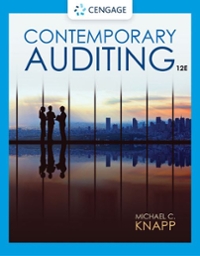Antoine Deltour faced a difficult decision in the summer of 2008. Deltour was searching for a job
Question:
Antoine Deltour faced a difficult decision in the summer of 2008. Deltour was searching for a job after having completed a master's degree in business with a concentration in accounting from Ecole Superieure de Commerce in Bordeaux, France.
The timing could not have been worse for the 24-year-old Deltour and other recent business college graduates seeking entry-level professional accounting positions. In late 2007, the subprime-mortgage crisis in the United States had triggered a sudden and sharp downturn in the world's largest economy. That downturn quickly spread across the globe and had a particularly harsh impact on the major trading partners of the United States, among them the nations of the European Union (EU).
By the summer of 2008, when Deltour entered the job market, the "Great Recession" had slammed France, causing the nation's economy to begin contracting during the second quarter of fiscal 2008. Because French employers were deferring or canceling plans to hire new employees, Deltour realized that he might be forced to expand his job search outside of his home country. An acquaintance of Deltour who had graduated from the same Bordeaux business school worked on the audit staff of the PricewaterhouseCoopers (PwC) practice office in Luxembourg City, 100 miles north of Epinal, a small city in northeastern France that was Deltour's hometown. Deltour's friend encouraged him to apply for a job with that office. Luxembourg's dual status as the EU's largest private banking center and second-largest investment fund center in the world-second only to the United States-had blunted the recession's impact on its economy. Fortunately for Deltour, in addition to his friend, he had another connection to PwC.
Most graduate students in French business schools complete an internship as a part of their academic programs. Deltour had spent three months in early 2008 interning with PwC. That internship helped him land a full-time job on PwC's Luxembourg City audit staff in September 2008, a position that was a "dream" job for the shy and softspoken Deltour. His preference had always been to work in a business field linked to serving the public interest. Auditing the financial statements of the large public companies that made up the core of PwC's Luxembourg clientele fit his career goal perfectly.
Questions
1. Define “public interest” as that term is applied by the AICPA Code of Professional Conduct. Do you believe that Antoine Deltour acted in the “public interest”? Why or why not? What alternative courses of action were available to him after he discovered the Luxembourg-based tax avoidance agreements? Which of those alternatives would you have chosen, and why?
2. Briefly summarize the “confidentiality” obligation imposed on CPAs in public practice by the AICPA Code of Professional Conduct. Identify the exceptions to the profession’s confidentiality rule. Would any of those exceptions have applied to the circumstances faced by Antoine Deltour?
3. Do you believe that PwC acted in the public interest when it developed the tax avoidance plans for its major multinational clients? Explain. Do you believe that PwC acted properly when it insisted that Antoine Deltour face criminal charges for his role in revealing those plans to the public?
4. Antoine Deltour suggested that individuals in business fields should have someone to talk with when circumstances arise that may “compromise their personal ethics.” Do you believe that the major accounting firms should provide such “outlets” for their professional employees? How could those firms implement such a policy?
Step by Step Answer:






